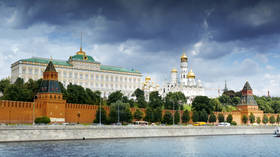EU to target luxury car influx into Russia – FT

The EU is preparing to roll out new restrictions against Belarus, including on luxury cars, in a bid to prevent Russia from bypassing Western sanctions imposed over the Ukraine conflict, the Financial Times reported on Thursday.
According to a draft measure currently under discussion, the EU is seeking “to minimize the risk of circumvention,” particularly when it comes to Belarusian imports of luxury vehicles which are then sold on to Russian nationals.
The new measures against Russia’s key ally would also reportedly cover other high-end items, ban exports to and via Belarus of technology and goods that could be used by the military, and would target liquefied natural gas. The EU would also bar diamond imports from Belarus, following a similar restriction introduced against Russia in December, the newspaper said.
According to statistics collected by Trade Data Monitor and shared by the FT, EU car export to Belarus spiked after the West ramped sanctions on Russia in 2022, reaching $268 million in early 2024.
Numerous Western officials have complained that Russians have no problem buying a Western-made car in Belarus due to loopholes in the restrictions. As a result, Brussels has been urged to align the sanctions regime against Minsk with the measures imposed against Moscow.
According to the FT, in late 2022 one Rolls-Royce valued at $630,000 came to Russia via a Belarusian source, and in 2023 at least 28 Maybachs were imported by Russian nationals from Belarusian suppliers.
After the start of the Ukraine conflict, the EU ramped up sanctions against Minsk, citing its involvement in Moscow’s campaign against Ukraine. While the measures are much more lenient than the ones targeting Russia, the EU still banned the export of dual-use goods and technology to Belarus, as well as a wide range of industrial products, while targeting the country’s financial sector. Both Belarus and Russia have denounced the sanctions as illegal.
Belarusian officials have said they try to mitigate the impact of the sanctions by changing customs legislation and organizing complex logistical chains. In April, lawmakers in Minsk passed a bill allowing the legal sale of sanctioned goods that are marked as being in transit.













